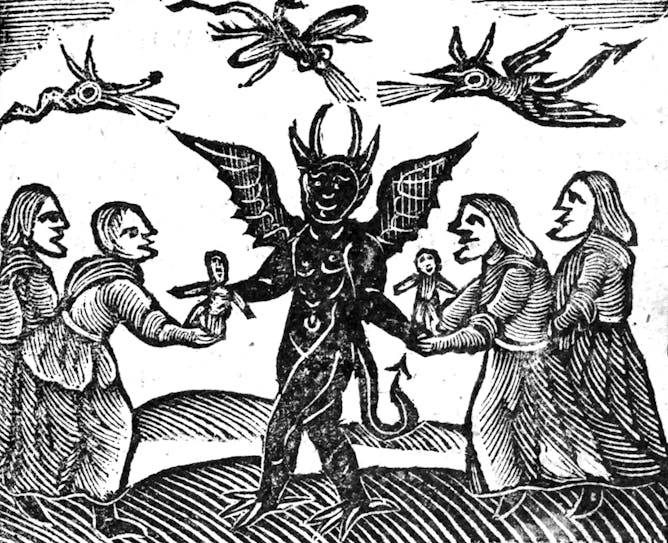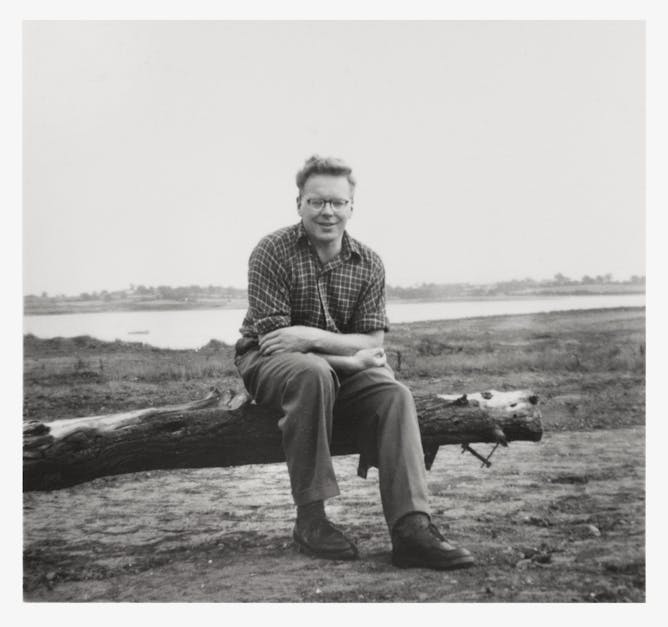|
Between the 15th and 18th centuries there was an orgy of superstitious violence across Europe as 50,000 people, overwhelmingly women, were executed for witchcraft. England and Scotland saw more than their share of the action, hanging almost 5,000 people for supposedly consorting with the devil. But unlike its neighbours, Wales stands out for having a far less bloody history, with only five people hanged for witchcraft.
According to historian Mari Ellis Dunning, despite a strong belief in the supernatural in Wales, accusations of witchcraft rarely reached the courts. And when they did, they almost never resulted in punishment. Dunning explains the rather more reasonable approach taken by the Welsh people.
There’s been an explosion in discussion about AI and its future impact on society – is it a force for good that will create faster, more efficient systems or a catalyst for the breakdown of trust and responsibility needed for a functioning society? Tim O'Reilly, Mariana Mazzucato, Ilan Strauss and Rufus Rock come together to argue in this piece that leading scientists, technologists and philosophers have historically made “spectacularly terrible guesses” about how innovation will evolve – including Einstein. Instead of fixating on the unknowable risk posed by AI, they suggest we focus on the very evident misalignment of economic incentives and society’s interests that currently plague the big tech companies.
The drug war between cartels and the government in Mexico has devastated the country. But a new study reveals a surprising truth: the roots of the violence lie not just in criminal activity, but in the unintended consequences of government policy on both sides of the border.
Meanwhile, a new exhibition sheds light on John Alec Baker, who spent years documenting the almost extinct peregrine in Essex. Baker’s observations and evocative prose not only captured the beauty of the endangered bird, but also served as inspiration for other environmentalists, including Sir David Attenborough and Chris Packham.
|

|
Siriol Griffiths
Wales Editor
|
|

A group of witches offering wax effigies to the Devil in a 17th-century woodcut.
Pictorial Press Ltd/Alamy
Mari Ellis Dunning, Aberystwyth University
Only five witches were executed in Wales, while thousands were sentenced to death in Scotland and England.
|

Shutterstock/Chaosamran_Studio
Tim O'Reilly, UCL; Ilan Strauss, UCL; Mariana Mazzucato, UCL; Rufus Rock, UCL
Unlike the risks from AI’s capabilities, the economic risks from new technologies are knowable and can be mitigated
|

Joebeth Terriquez / EPA
Nathaniel Morris, UCL
The modern Mexico–US drug trade is rooted in the unintended consequences of government policy on both sides of the border.
|

Photo: Doug Atfield. Special Collections, Albert Sloman Library, University of Essex/Copyright Estate of J.A. Baker
Sarah Demelo, University of Essex
John Alec Baker’s 1967 novel, The Peregrine, recounts the story of a bird over ten winters, but his archive is the story of a very private man.
|
World
|
-
Natasha Kuhrt, King's College London
China and Russia have jointly criticised the west, as well as pledging economic and security co-operation.
-
Fabio Andrés Díaz Pabón, University of Cape Town; Maria Gabriela Palacio, Leiden University
The raid almost certainly broke international law, but Ecuador’s president is hoping his strongman tactics will resonate with the electorate.
|
|
Politics + Society
|
-
Matilde Rosina, Brunel University London
A global index could hold states accountable for refugee protection.
-
Grant Duncan, City, University of London
Political trust is paradoxical. No one should be entrusted with power without conditions.
|
|
Arts + Culture
|
-
Angela Wright, University of Sheffield
She has largely been airbrushed from history, but a new novel seeks to make Claire Clairmont visible by imagining her life after Byron.
|
|
Business + Economy
|
-
Simon Chadwick, SKEMA Business School; Paul Widdop, Manchester Metropolitan University
Paris will be at the centre of the global sporting stage this summer.
|
|
Environment
|
-
Ralitsa Hiteva, University of Sussex
The climate policies I research aren’t working – as I found out the hard way.
|
|
Health
|
-
Eef Hogervorst, Loughborough University; Ahmet Begde, Loughborough University; Thom Wilcockson, Loughborough University
A loss of visual sensitivity could be an early predictor of dementia.
-
Dan Baumgardt, University of Bristol
What’s the point of pubic hair? Does it serve an important purpose or is it a costly inconvenience? An anatomist explains the science.
-
Stephen Hughes, Anglia Ruskin University
Apple cider vinegar has been hailed as the latest immune boosting wonder supplement – but claims should be taken with a pinch of salt. However, there is evidence that it could help with weight loss
|
|
Science + Technology
|
-
Fiorentina Sterkaj, University of East London
Parents increasingly organise entertainment for their children rather than letting them come up with it themselves.
|
|
|
|
| |
|
|
|
|
| |
| |
| |
| |
| |
|
|